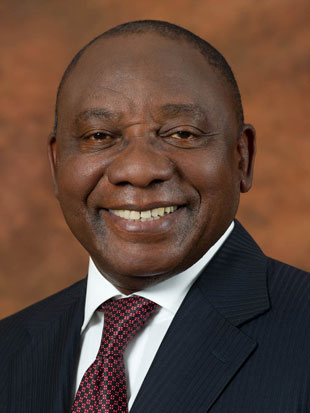
Rail must be the backbone of public transport in South Africa
 Dear Fellow South African,
Dear Fellow South African,
We have placed the growth of an inclusive economy and the creation of jobs at the centre of the work of the Government of National Unity. This is taking place alongside actions to tackle poverty and the high cost of living and to build a capable, developmental state.
These priorities are uppermost in our minds as we mark Transport Month this October. The efficient, safe and affordable movement of people and goods around the country is essential for economic growth and jobs.
Goods that are produced by our workers need to move from mines, factories and farms to our country’s markets and international markets through our ports. People need to be transported to workplaces, clinics, hospitals and schools. When our transport system works well, then the cost of doing business is lowered and our country’s products and services are more competitive.
Affordable public transport helps to reduce the cost of living for millions of South Africans. Our public transport system is in a poor state due to a lack of investment over many years, as well as theft and vandalism, especially during the COVID pandemic. Without affordable and reliable alternatives, households spend a large proportion of their income on transport. Fixing public transport therefore plays a big role in reducing poverty.
A particular area of focus for this Administration is the development of rail as the backbone of transport in South Africa.
Much progress has been made in restoring urban passenger rail to full service. The Passenger Rail Agency of South Africa (PRASA) has to date restored 31 out of 40 priority rail corridors back to operation. By March this year, 40 million passengers were using public trains, nearly three times more than the year before.
Last year we set up the National Logistics Crisis Committee (NLCC) to address our logistics challenges, particularly in a number of goods transportation corridors. Transnet, business and labour are working together to increase the volume of freight that is carried on our rail corridors to be transported to our ports. The NLCC is supporting the implementation of the Freight Logistics Roadmap. The roadmap covers areas such as the security of the rail network, operational improvements and capital investment.
It is expected that Transnet will finalise a Network Statement by the end of the year, which will facilitate access by third-party operators to our rail network. This will help to increase the volume of goods carried by rail. By 2029, our rail lines need to be transporting at least 250 million tonnes of freight a year.
While we attend to the immediate challenges, we are also looking ahead.
Work is underway to develop a National Rail Masterplan that will lay out the future for rail in South Africa. Among other things, the Masterplan will cover passenger rail in our cities, including rapid rail. It will also cover high speed rail over long distances between centres. The substantial work required to develop the Masterplan is expected to be completed by the end of next year.
The achievement of our ambitious targets will require considerable investment in infrastructure, rolling stock and signalling. We will need to make use of new technologies, including artificial intelligence, in areas like cargo tracking, passenger ticketing and securing critical infrastructure.
The Government alone will not be able to carry the scale of the investment needed. That is why we are working to mobilise private sector investment in rail and port operations, while ensuring that the infrastructure remains State-owned.
Not only does the development of rail reduce the cost and improve the reliability of transport for both people and goods. It also makes an important contribution to the reduction of our carbon emissions. Together with support for new technologies like electric vehicles and hydrogen fuel cells, we can make transport in this country far cleaner and more environmentally sustainable.
While we improve the reach and performance of rail, we need to properly integrate all modes of public transport so that passengers can move seamlessly from one destination to another. Transport planning and policy development must therefore take account of the contribution of all forms of transport. The Department of Transport is, for example, reviewing the approach to funding bus rapid transport programmes in municipalities and the taxi recapitalisation programme.
While we have achieved important progress in restoring our freight and passenger rail systems, we have much further to go. We will need far more investment, more effective use of technology and closer collaboration between all stakeholders.
We are now on the right track towards a public transport system that is safer, more efficient and more affordable – and that supports the growth of an inclusive economy, reduces poverty and creates employment.
With best regards,
Distribution channels:
Legal Disclaimer:
EIN Presswire provides this news content "as is" without warranty of any kind. We do not accept any responsibility or liability for the accuracy, content, images, videos, licenses, completeness, legality, or reliability of the information contained in this article. If you have any complaints or copyright issues related to this article, kindly contact the author above.
Submit your press release